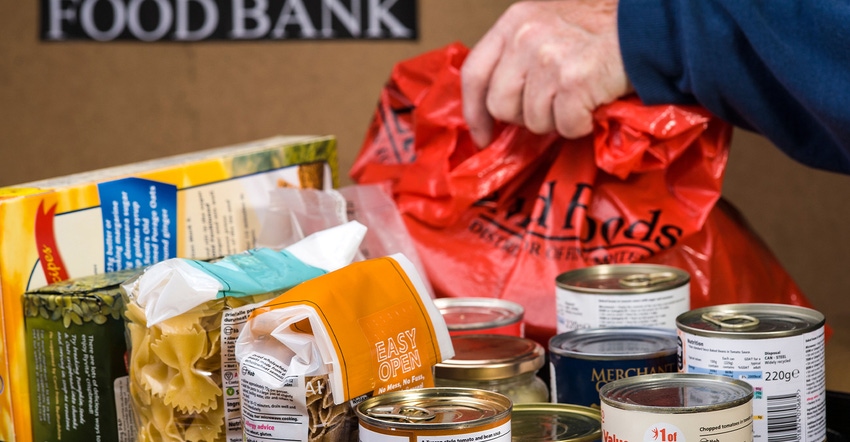Report: The Season of Giving Sees Drop in Food Bank Donations Amid Economic Challenges
Inflation and grocery prices are changing how Americans shop at their local grocery store. According to a new report, this new look at spending negatively affects food bank donations.

We’re knocking on the door of the holiday season and with that comes plenty of spending on food for large families and groups. However, inflation and grocery prices are changing how Americans shop at their local grocery store. According to a new report, this look at spending negatively affects food bank donations.
Divert, Inc., an impact technology company revealed the results of a new consumer survey that investigated analysis on food bank donations, food insecurity, and grocery shopping behaviors. According to the survey, high inflation and grocery prices have significantly impacted consumers’ food donations during the holiday season.
Research from the U.S. Department of Agriculture (USDA) shows that there is a major food security issue that is only getting drastically worse. Approximately 17 million households reported being food insecure in 2022, up from 13.5 million households in 2021. Using this as a base, Divert commissioned its survey to understand how the current economic climate impacts U.S. food banks and food security ahead of the holiday season.
“Preventing waste through food donations to help feed people in need is central to our mission,” said Ryan Begin, CEO and co-founder Divert.
“Since 2018, we have worked with our customers to facilitate the donation of more than 12.5 million pounds of food, equivalent to nearly 10.5 million meals. With this survey and our analysis, we want to shed light on the state of food donations and consumer shopping habits so that we can help drive education, understanding, and real change.”
The survey reports that almost 46 percent of respondents said they are more likely to donate to food banks during the holiday season than the rest of the year. However, only 25 percent of respondents say they are more likely to donate during the 2023 holiday season compared to past years. Those who plan to donate less to food banks cite rising food and grocery costs as the number one reason for not donating.
While donations appear to be dwindling year over year, respondents do recognize that food insecurity is a growing concern. The survey reports that 85 percent of respondents believe that food insecurity levels have increased since the COVID-19 pandemic and 63 perccent believe that the U.S. is significantly more food insecure than the USDA data suggests. Additionally, 64% of respondents claimed they donated food or money to food banks last year with food insecurity being their main driving factor to donate.
Although there are those who want to donate, those individuals are being held back by the current economic climate as it’s having a significant impact on consumers’ behaviors. According to Divert, nearly 72 percent of Americans are changing their buying habits at grocery stores due to high inflation and food costs. Just over half of the survey respondents said grocery prices have forced them to cut costs in other areas. Of the respondents, 25% of consumers report that they are anxious about their ability to afford food in the next three to six months and 30 percent are buying fewer fresh foods due to the steadily increasing price of groceries.
Divert’s report shows us a clear challenge is forming: a willingness to donate food is actively clashing with economic constraints. The survey serves as an important call to action, urging consumers to understand and empathize with America’s current food insecurity challenges and the impact the economy is having on food bank donations. In this evolving landscape, let us remember that the true spirit of the holiday season lies in our ability to come together, support one another, and forge a path toward a future where compassion transcends economic boundaries and hunger is alleviated.
About the Author(s)
You May Also Like




